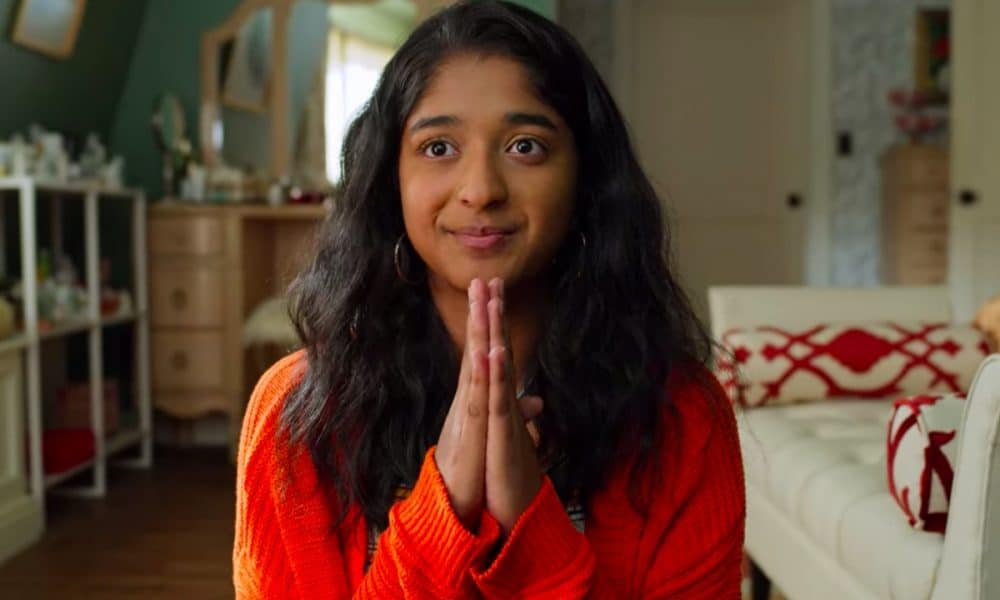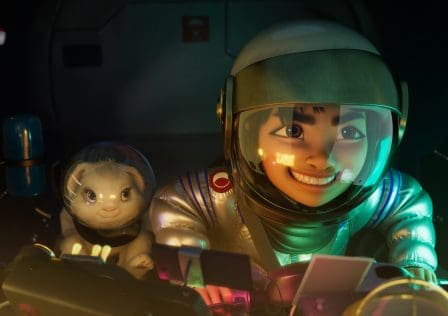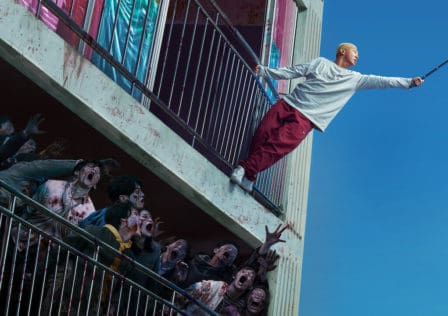When it debuted on Netflix, Never Have I Ever quickly copped a spot among the top ten trending shows in just a couple of days. And it’s easy to see why – an Indian American girl (no, not Native American) is the lead character, and she is accompanied by a racially diverse-as-heck cast.
Once more, the Representation Gods smile upon us.
Never Have I Ever has been a critical darling upon release, with many media outlets praising its depiction of representation. The show is created by Mindy Kaling, whose career on TV since her depiction of Kelly Kapoor in The Office — for which she also wrote, produced, and directed — has shredded the stereotype of Indian-American immigrants. Never Have I Ever is essentially her story as a first-generation immigrant, weaved into a typical coming-of-age tale of a highschooler seeking to reinvent herself and snag the guy she likes.
Racial diversity on television is always a welcome sight. In fact, Never Have I Ever stands out in that most of the main cast is anyone but a white American. We get to watch a satisfying cocktail of East Asians, Hispanics, African Americans, and of course Indians, take centre stage.
It is the sort of representation we used to only be able to dream of. Unfortunately, all of it feels shadowed by the unlikable protagonist, Devi (Maitreyi Ramakrishnan).
The series opens with Devi just beginning to recover from her father’s shocking death, which caused a psychological trauma so severe that she lost the ability to walk for three months. To make things worse, she has a tumultuous relationship with her mother (Poorna Jagannathan). Hence, it may seem understandable at times that Devi has a tendency to explode in atrocious temper and tunnels into jarring selfishness.
But it is hard to root for Devi. Even the loss of a loved one would not have given her the green light to treat the people around her like absolute shit. She gaslights and disregards everyone who cares about her, all in the name of snagging the popular guy, Paxton Hall-Yoshida (Darren Barnet). This makes it pretty hard for me to empathise with her.
SPOILERS AHEAD
Now, for most series and movies, we’re always expecting characters to redeem themselves and have some sort of meaningful epiphany or development. It was visibly an uphill struggle for Devi to finally get to that point. Yes, she tries (with minimal effort) to right some wrongs, and her friends forgive her. But for the most part she tends to make quick U-turns on her promises, so her entire redemption arc comes off as extremely forced.
But here’s why I continued watching all 10 episodes: every other character in the show turned out to have lots of personality and depth. From her family to her friends, they had interesting backstories that explored forward-thinking themes. In fact, every time a scene featured someone other than Devi, I actually started paying more attention.
Her best friend Eleanor (Ramona Young) has a mother who abandoned her to pursue a life in showbiz, while her other best friend Fabiola (Lee Rodriguez) struggles with her sexuality. Meanwhile, Devi’s mother is trying to hold herself together for having to raise a hormonal teen on her own while grieving for her dead husband, and her cousin Kamala (Richa Moorjani) faces an impending arranged marriage.
Even Devi’s annoying nemesis, Ben (Jaren Lewison), grapples with the pain of having neglectful parents, and her coolboy crush actually deeply cares for someone other than himself (it has to be noted though that he is an asshat too).
All these characters have a ton of depth that are also used to explore questions of identity and culture. And amazingly, they keep forgiving Devi even when they’re aware she constantly lies to them.
What’s most disappointing though, is that Devi’s awful actions are positioned as forgivable, even humorous when she pretty much faces zero long-term consequences for them. This is something I’ve also noticed in a lot of female-centric coming-of-age Netflix films and series such as Sierra Burgess Is A Loser, To All The Boys I’ve Loved Before, and The Kissing Booth.
Never Have I Ever perpetuates a teen romantic comedy trope by zooming the lens on the “invisible” underdog — the unpopular girl who has a ton of personality and is thus relatable. But these shows require them to change pretty much everything good about themselves (read: lie and pretend) in order to succeed (read: get the guy they like).
With its diverse cast, Never Have I Ever had an open field to crush stereotypes and create a platform where we can see minority characters truly shine. But now it’s just another teen show that caves into a predictable formula. This drives its focus far away from the real gems of the series — interesting non-conformist individuals.
Then again, let’s talk reality: would the show have succeeded in shining the spotlight on diversity if it hadn’t gone the typical teen drama route? Probably not as much. And it’s not the end just yet, seeing that Mindy Kaling has confirmed that Season 2 is happening. It’s likely I’d still tune in for it — despite my obvious frustration towards Devi — just to see what else happens with the rest of the characters. For now, Season 1 makes for easy-to-digest entertainment that strengthens the case for diversity on screen.
Also published on Medium.

Devours music till songs get stuck on loop in her head. Hogs the TV for Netflix binges and PS4 games. Has been accused of asking too many questions during movie nights.



